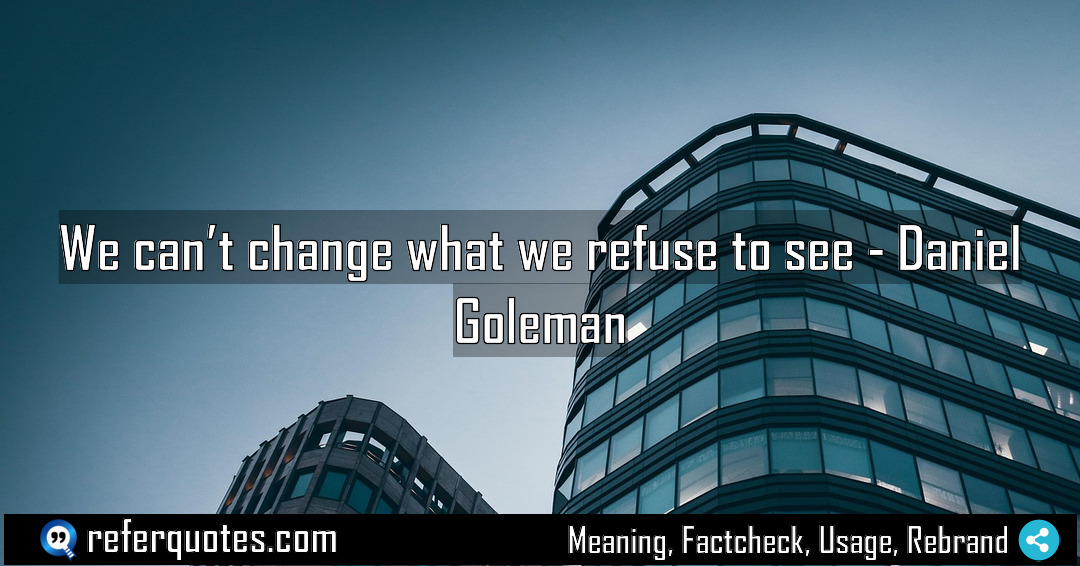We can’t change what we refuse to see is a brutally honest truth about self-deception. It’s the fundamental roadblock to any real personal or professional growth. You have to acknowledge the problem before you can even think about fixing it.
Share Image Quote:Table of Contents
Meaning
The core message is stark: awareness is the non-negotiable first step toward change. If you’re actively ignoring or denying a reality, you are, by definition, powerless to change it.
Explanation
Let me break this down. This isn’t just about overlooking a small flaw. It’s about the active, often unconscious process of self-deception we all engage in. Think of it like this: your mind builds a wall to protect you from a painful truth. But that same wall traps you inside with the very problem you’re trying to avoid. You can’t solve a problem that you’ve convinced yourself doesn’t exist. The refusal to see is a choice, even if it doesn’t feel like one, and it’s a choice that guarantees stagnation.
Quote Summary
| Context | Attributes |
|---|---|
| Original Language | English (4111) |
| Category | Personal Development (743) |
| Topics | change (111), truth (92), vision (38) |
| Literary Style | aphoristic (206) |
| Emotion / Mood | calm (541), motivating (346) |
| Overall Quote Score | 89 (97) |
Origin & Factcheck
This gem comes directly from psychologist Daniel Goleman’s 1985 book, Vital Lies, Simple Truths: The Psychology of Self-Deception. It’s a prequel to his famous work on Emotional Intelligence. You’ll sometimes see it misattributed to other self-help gurus or even ancient philosophers, but its home is firmly in Goleman’s exploration of how our minds hide things from us.
Attribution Summary
| Context | Attributes |
|---|---|
| Author | Daniel Goleman (125) |
| Source Type | Book (4623) |
| Source/Book Name | Vital Lies, Simple Truths: The Psychology of Self-Deception (61) |
| Origin Timeperiod | Modern (866) |
| Original Language | English (4111) |
| Authenticity | Verified (4623) |
Author Bio
Daniel Goleman is a psychologist and bestselling author whose journalism at The New York Times brought brain and behavior science to a wide audience. He earned a BA from Amherst and a PhD in psychology from Harvard, and studied in India on a Harvard fellowship. Goleman’s research and writing helped mainstream emotional intelligence, leadership competencies, attention, and contemplative science. He co-founded CASEL and a leading research consortium on EI at work. The Daniel Goleman book list includes Emotional Intelligence, Working with Emotional Intelligence, Primal Leadership, Social Intelligence, Focus, and Altered Traits.
| Official Website
Where is this quotation located?
| Quotation | We can’t change what we refuse to see |
| Book Details | Publication Year: 1985; ISBN: 9780743240156; Last edition: 1996 Harper Perennial; Number of pages: 288. |
| Where is it? | Approximate page from 1996 edition, Chapter 5: The Costs of Denial |
